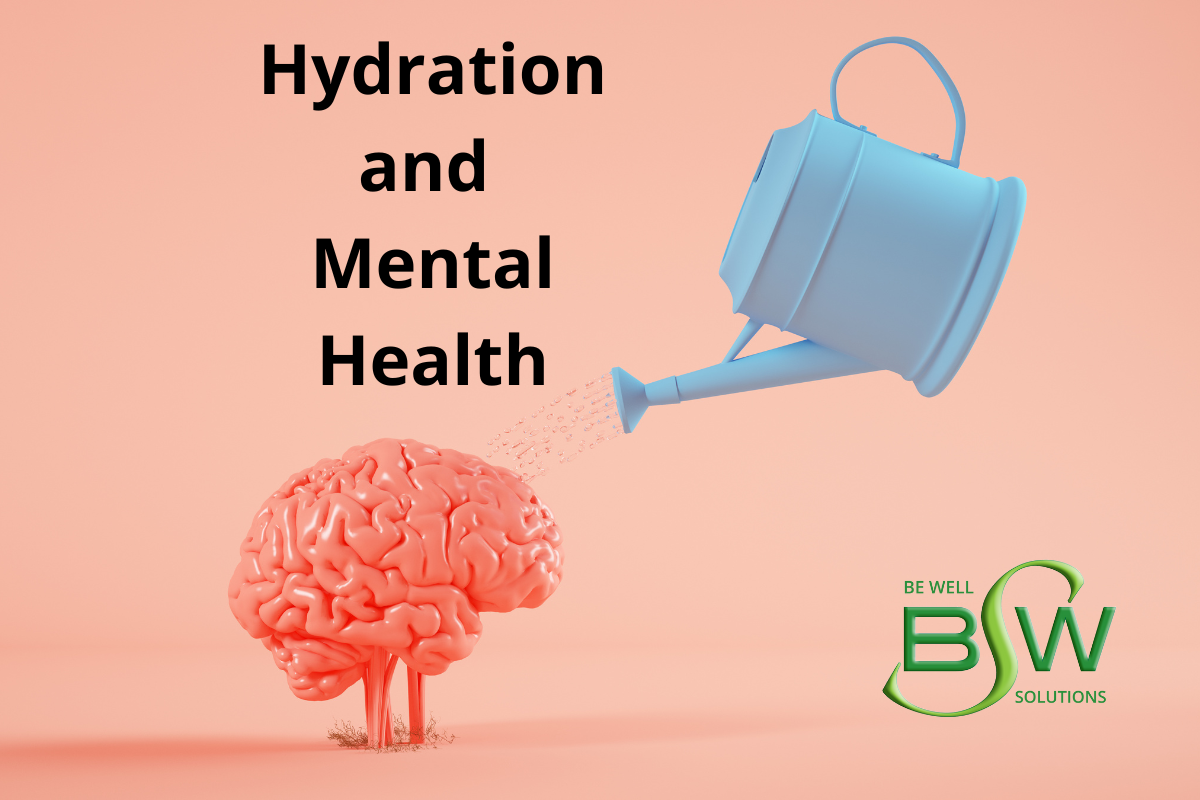
Staying hydrated is an integral part of health and wellness. However, it is often overlooked, especially when water is out of sight and out of mind. You’re probably familiar with how hydration is necessary during exercise, fighting a cold, or proper digestion. But did you know that adequate hydration is important for our mental health too? Let’s take a closer look at how it can affect us mentally.
Improved Brain Performance
According to the National Council on Aging, “even mild dehydration – as little as 2% fluid loss – can affect memory, mood, concentration, and reaction time.” Getting adequate hydration throughout the day can balance all these areas and positively impact our brain performance. As you age, the risk for dehydration increases, and cognitive function can decrease. This shows that proper hydration and water intake are key factors in healthy aging.
More Energy
Our brain and our body need oxygen to function. Whenever you’re dehydrated, your heart has to work harder to pump oxygen-rich blood to your body. While it may not feel like it, your body is spending a lot of energy doing this. Since your body is working overtime, you may feel exhausted or unfocused. Not only will staying hydrated make you think a little sharper, but it will also allow your body to be more efficient and will leave you feeling more energized.
Manage Mental Health
Hydration has an impact on mood and mental health. Studies have found that dehydration may affect dopamine and serotonin levels in the brain. These neurotransmitters are partly responsible for regulating mood. When they are out of balance, an individual can experience more mood swings and feelings of depression or anxiety (Massachusetts Public Health). According to Healthline, several studies have found a connection between dehydration and depression, confusion, and fatigue. Aiming for an adequate amount of water each day can help ease tension and mood while increasing calmer feelings.
How Much Water is Recommended?
So how much water should we be drinking every day? It’s different for every individual and in every situation. A basic rule of thumb is to take your body weight in pounds, divide it in half, and then aim for that many ounces of water each day. For example, if someone weighed 200 pounds, they would want to drink about 100 ounces daily. However, if you’re nowhere near the calculated amount, start with drinking an extra glass or two throughout your day to work on building toward a healthier habit. On days where you’re more active, sweating, or sick, you’ll likely want to increase this water intake to maintain hydration. While the exact amount varies, the best way to check for adequate hydration is by the color of your urine. If your urine is clear and odorless, then you’re well-hydrated.
More than half of our body is made of water, and it needs water to continue functioning correctly. If you’re struggling to remember to drink water throughout the day, consider carrying a water bottle or setting water break reminders on your phone. You can also add flavor to your hydration efforts by eating water-rich fruits and vegetables like strawberries, cucumber, watermelon, and zucchini.
Let’s raise a glass of water for mental health. Cheers!
Written by BWS Lead Health Coach- Kelly Schlather, BS, ASCM – CEP
Continue reading July 2022 Newsletter: Make a Hydration Station
